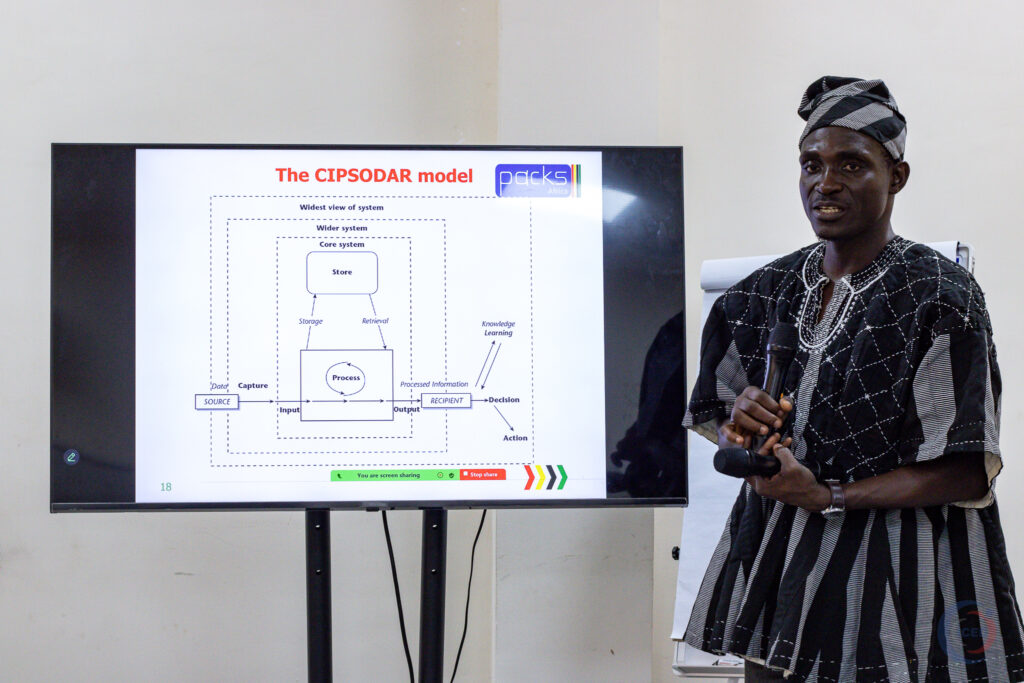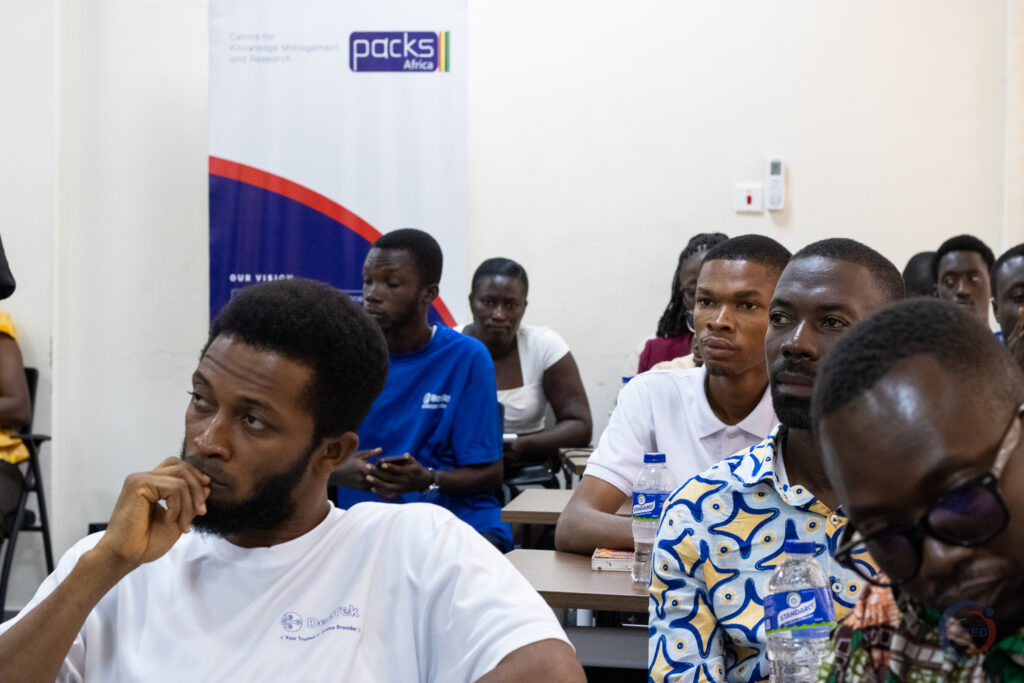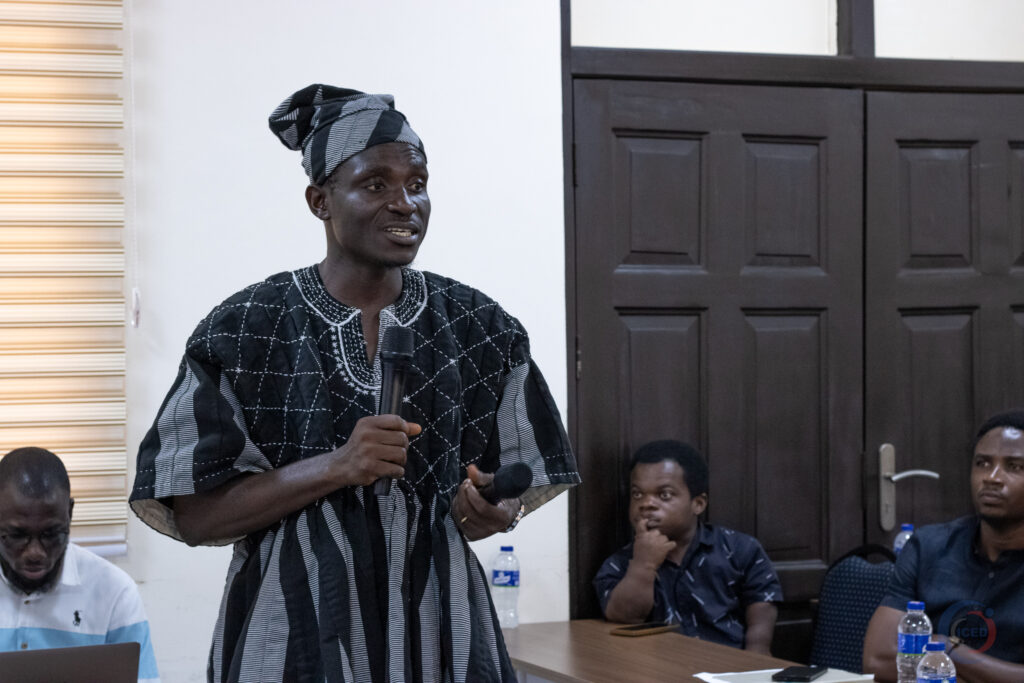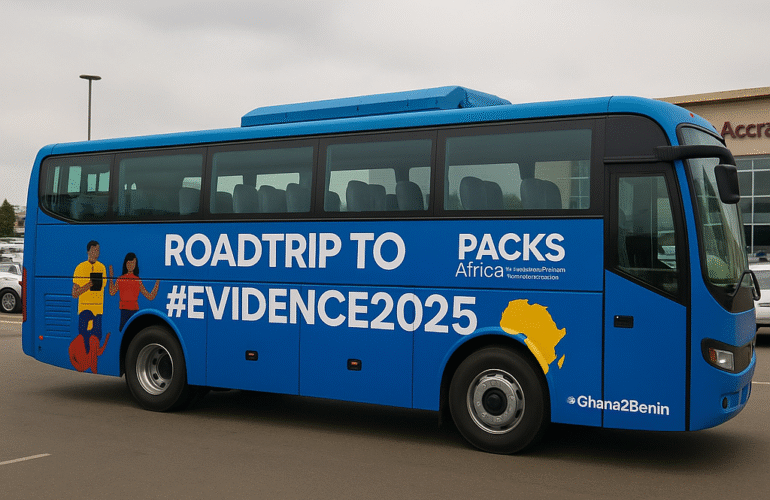
At the 2025 Evidence to Action (E2A) Conference, PACKS Africa convened a bold and intellectually engaging side event that challenged conventional understandings of development. Led by Executive Director, Kirchuffs Atengble, the session interrogated the historical, ideological, and political underpinnings of what has long been treated as a neutral, technocratic process. It asked a provocative question: what if development, as we know it, is fundamentally flawed in its assumptions – and what might a truly people-centred alternative look like?
In his opening remarks, Mr. Atengble emphasised that development has never been a one-size-fits-all journey. Rather, it has evolved through competing lenses, ranging from historical trusteeship and structural dependency to cultural emancipation and democratic struggle. Drawing on thinkers like Amílcar Cabral, Claude Ake, and Samir Amin, he noted that many dominant models of development are not only externally imposed but also steeped in ideologies that reinforce hierarchy, inequality, and control.
The real-world consequences of these frameworks were captured in what Kirchuffs called the “21st-century development paradox”: the exponential growth of knowledge and information systems, yet a persistent reluctance or inability to use this knowledge effectively in policymaking. This paradox is visible in phenomena such as economic growth without social inclusion, technological advancement alongside digital divides, and environmental degradation despite rhetorical commitments to sustainability.
At the heart of the conversation was the need to democratise and decolonise both knowledge production and its use in governance. This is where PACKS Africa’s work becomes especially significant. The organisation introduced participants to the CIPSODAR model, as used in information systems practice. The model comprises eight interlinked stages: Capture, Input, Process, Store, Output, Decision, Action, and Results. This tool was used to present a systematic, step-by-step approach for evidence-informed decision-making (EIDM). Far from being a mere technical framework, CIPSODAR is grounded in the idea that the effective use of evidence must begin with an appreciation of context, power relations, and human agency.

Through this model, PACKS Africa positions evidence not as an elite tool reserved for policymakers and researchers, but as a shared public resource. Participants were invited to view the evidence ecosystem as a collaborative, cyclical, but complex process – one in which citizens are active contributors, not passive subjects. As Mr. Atengble noted, “We must stop seeing citizens as mere data points. They are the protagonists of the development story.”
This people-first orientation resonated strongly with attendees. One participant, a youth leader from a civil society organisation, shared that while their community had always had access to local knowledge, they lacked the systems to transform that knowledge into policy influence. “With PACKS Africa’s support, we are learning how to turn what we know into something policymakers can hear and act upon,” she said.
In this regard, CIPSODAR is not simply a tool for improving decision-making efficiency. It is also a mechanism for enhancing accountability, transparency, and trust in governance. By capturing evidence from the ground, storing it in accessible formats, and ensuring that it is presented in ways that are relevant to diverse audiences, PACKS Africa is helping to build a policy environment that is both inclusive and responsive.

Perhaps the most compelling segment of the event was the open discussion, where participants reflected on the tension between intentional and immanent development. One question stood out: “If development is intentional, then whose intentions are shaping it, and for whose benefit?” It was a timely reminder that development is never neutral. Every policy choice reflects underlying values, interests, and assumptions. To shift outcomes, we must first shift the questions we ask and the frameworks we use.
In this shifting landscape, PACKS Africa plays a critical and catalytic role. It is not just an advocate for EIDM, but also a builder of the infrastructure, relationships, and capacities required to make it work in practice. The organisation’s efforts span digital information systems, capacity development, and institutional partnerships. These are not ends in themselves but tools to support a more just, participatory, and locally grounded vision of development.
In concluding the session, Kirchuffs Atengble offered a powerful reflection: “We are not just fighting for better data or clearer dashboards. We are fighting for the freedom to define our own realities and to shape our own futures.” That sentiment captured the spirit of the entire event.
The 2025 E2A side event by PACKS Africa was not simply about better tools or smarter policy. It was a call to reimagine development itself – rooted in the lived experiences of African people, and driven by their aspirations for dignity, justice, and self-determination.
judi bola monperatoto monperatoto situs toto link slot link slot



